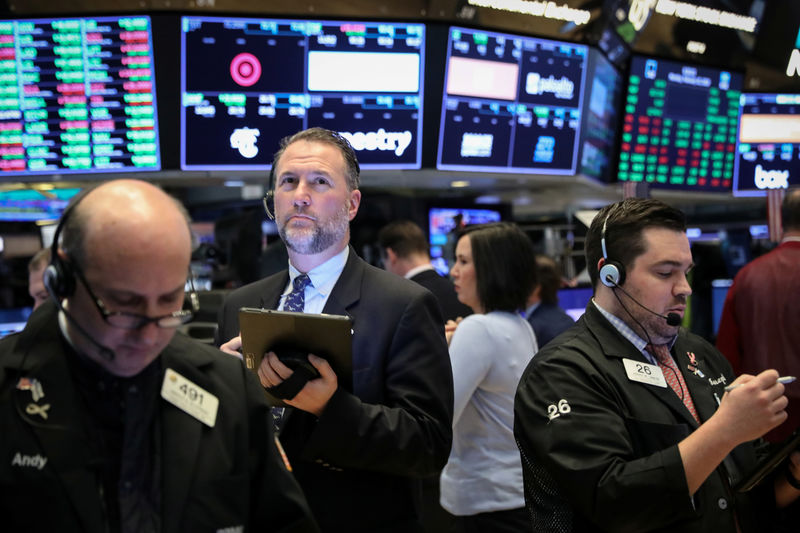By Geoffrey Smith
Investing.com -- Cities and states tighten their restrictions on social gatherings as the Covid-19 pandemic gains momentum. China acknowledges Biden's victory. Stocks are set to reverse Thursday's losses, supported by an upbeat update from Disney , but oil is in the doldrums again. Here's what you need to know in financial markets on Friday, November 13th.
1. Virus restrictions tightened after another new record high for infections
The number of new infections of Covid-19 in the U.S. hit 150,000 for the first time, as cities and states moved at various speeds to contain the latest wave of coronavirus.
The mayor of Chicago urged people to stay home as far as possible, while New York City Mayor Bill de Blasio warned that he would shut the city’s schools if the proportion of positive tests for the disease breached the 3% threshold. It’s currently at 2.6%.
In Europe, Chancellor Angela Merkel warned that Germany’s restrictions may have to stay in place through the Christmas and New Year season, and warned that the virus will keep health experts busy all winter. Germany and Italy are struggling to flatten their infection curves, while more progress has been seen in Spain, Belgium and the Netherlands, which moved to restrict social gatherings earlier.
2. China acknowledges Biden, GOP starts to lean on Trump
China beat the Republican Party to congratulating Joe Biden on his election victory, nearly a week after the counting process all-but confirmed the results of Tuesday’s vote.
The GOP’s unity on refusing to endorse the election result is, however, starting to crack. Ohio Governor Mike DeWine acknowledged Biden as President-elect on Thursday while Montana Secretary of State Corey Stapleton urged President Donald Trump to step aside gracefully.
Republican Senators Chuck Grassley, Lindsey Graham (NYSE:GHM) and John Cornyn, meanwhile, all urged the administration to allow Biden more access to intelligence briefings, something that Trump has refused so far.
On Thursday, U.S. election officials, led by the Department of Homeland Security’s Cybersecurity and Infrastructure Security Agency, issued a statement saying that the election was the most secure in U.S. history. It was co-signed by several state and local government election groups.
3. Stocks set to open higher
U.S. stock markets are indicated to open higher on Friday at the end of a topsy-turvy week in which the initial euphoria on finding an effective vaccine against Covid-19 has buckled under the weight of the bleak short-term outlook.
By 6:45 AM ET, Dow Jones Futures were up 245 points, or 0.9%, while the S&P 500 Futures contract and NASDAQ Futures contracts were both up 0.7%, reversing their losses from Thursday.
Overnight, Chinese stocks had fallen after the Trump administration issued a new blacklist of companies deemed to be facilitating the Chinese military. U.S. entities will be banned from investing in the companies.
European markets were mixed, supported by confidence in more stimulus from the European Central Bank but held back by growing doubt over the ratification of the 750 billion-euro ($885 billion) EU Recovery Fund.
With no U.S. earnings of note due Friday, the market may pay more heed to U.S. PPI numbers due at 8:30 AM ET (1330 GMT) and the University of Michigan’s Consumer Sentiment survey due at 10 AM.
4. Disney’s positive surprise
Walt Disney (NYSE:DIS) stock will be in focus later after the entertainment giant beat expectations for its latest quarter thanks to stronger-than-expected performance by both its ABC network and, more importantly, its Disney+ streaming service.
The company posted its second straight quarterly loss, weighed down as expected by lower box office receipts, capacity restrictions at its theme parks and cancellations at its cruise line.
However, the number of Disney+ subscribers rose another 13.7 million between August and October 3, the company said. Disney stock, which hit its first post-pandemic high after Pfizer’s announcement about its vaccine on Monday, rose 4.3% in premarket trading.
5. Oil falls as supply-demand balance wobbles
Crude oil prices weakened as expectations of reduced mobility in the U.S. and Europe coupled with news of further increases in output from Libya, threatening the fragile balance of supply and demand.
Reuters reported that Libya’s oil production has now reached 1.2 million barrels a day, up by nearly 1 million since the signing of a ceasefire agreement in September. Libya isn’t covered by the OPEC+ deal on output restraint, and so has been able to ramp up production without fear of pressure from its allies.
In Europe, French freeway operator Vinci (PA:SGEF) reported a sharp drop in mobility since the country enforced its latest lockdown measures, which are due to stay in place at least through December 1. It said road traffic fell 48% in the first full week of November in Europe’s second-largest economy.
By 6:45 AM ET, U.S. crude futures were down 1.2% at $40.63 a barrel, while Brent futures were down 0.9% at $43.14 a barrel.
